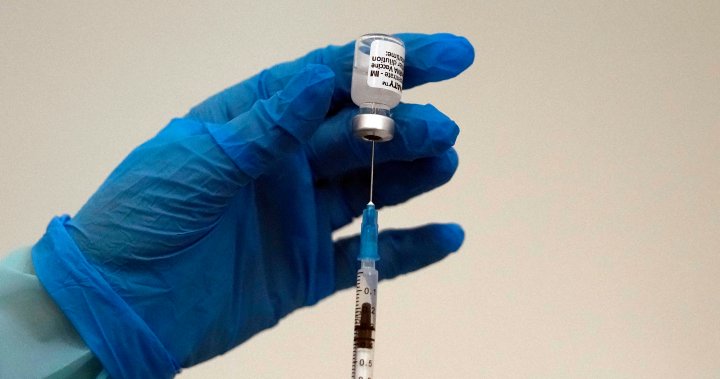
COVID-19 boosters will change the definition of fully vaccinated, says U.K. PM
Global News
Questions about how long the heightened immune response lasts against the highly contagious Delta variant have prompted some countries to begin rolling out third booster doses.
British Prime Minister Boris Johnson on Monday said the definition of fully vaccinated would have to be adjusted to account for third “booster” COVID-19 shots.
However, he did not give a time-frame for the move.
“It’s very clear that getting three jabs, getting your booster, will become an important fact and it will make life easier for you in all sorts of ways,” Johnson said at a news conference.
“We will have to adjust our concept of what constitutes a full vaccination to take account of that, and I think that is increasingly obvious.”
READ MORE: When could COVID-19 vaccine boosters be open for all adults? Timing is everything, experts say
The current definition of fully vaccinated means a person has received a full course of a vaccine authorized for use against COVID-19, which typically requires two doses of that vaccine.
But questions about how long the heightened immune response will last in the fact of the highly contagious Delta variant have prompted some countries to begin moving on rolling out third booster doses, with the U.K. now extending that eligibility to people over the age of 40.
The state of California in the U.S. has also opened up booster eligibility, while officials in Canada remain cautious about recommending boosters unless someone is immunocompromised or highly vulnerable.













